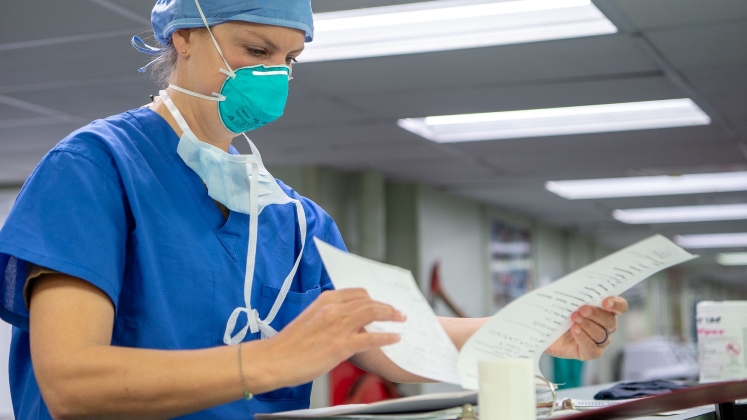
Writing high quality grant applications is easier when you know how research funding agencies work and how your proposal is treated in the decision-making process. The Research Funding Toolkit aims to provide this knowledge and teach readers the necessary skills to write high quality grant applications. A must-have for every researcher, whether junior or senior, and should be required reading for every member of a department, writes Simone Belli.
 The Research Funding Toolkit. Jacqueline Aldridge and Andrew M. Derrington. Sage. May 2012.
The Research Funding Toolkit. Jacqueline Aldridge and Andrew M. Derrington. Sage. May 2012.
Grant-writing is an increasingly important activity in academia. Learning how to write high-quality grant applications and having a firm grasp of how proposals are treated in the decision-making process is essential for surviving in today’s competitive academic world.
The authors of The Research Funding Toolkit, Jacqueline Aldridge (Research Manager at Kent Business School) and Andrew M. Derrington (Executive Pro Vice Chancellor of Humanities and Social Sciences at the University of Liverpool) guide the reader through constructing a grant application step by step, and succeed in providing a very useful tool for success in the research world. Although writing an application is often a daunting and dreaded task, this book is neither boring nor uninspiring: every page is clear and enjoyable, and includes a broad range of examples included from across many disciplines. Thirty-six examples are extracted from eight actual funded applications, covering a diverse selection of funding agencies in several countries.
The authors speak from experienced positions and indeed the book benefits from their expertise. Aldridge has assisted many academic colleagues in developing fundable research grant applications and Derrington has served on research grant committees for several UK research councils and the Wellcome Trust. Alongside the chapters they also provide three very interesting appendices, one of them about how to run toolkit workshops in a research institution.
Three main rules to writing a high quality grant application are presented: developing a research community; understanding the reader’s standpoint; and getting ‘a foot in the door’. In ‘How to Get Good Advice’ (Chapter 3), the authors raise the impossibility of producing research grant applications in isolation. As a member of a scientific community, it is important to know what other members think of your proposal. Their feedback can prove extremely valuable and ideally should be generated from every level, from several fields and institutions including administrative staff, to ensure that an application is procedurally correct. The authors give us directions on creating high collaboration networks, identifying several categories of people who are qualified to help with selected aspects of an application. It is also helpful to know which kind of collaborative profile (or which kind of isolated profile) you correspond to and how it is possible to start building relationships with researchers at other institutions.
Another very attractive section concerns how funding agencies make decisions and what they want to hear. In ‘How Funding Agencies Make Decisions’ (Chapter 5), the authors discuss how research funding works from an insider’s perspective, showing the reader the mechanisms and steps through which an application will pass. Aldridge and Derrington remind us that referees normally have lots of applications to read and do not have much time to read each one. Consequently, each must be clearly written and easy to read, especially to a speed-reader. To have success in every step of the funding game, it is vital that applicants understand what each referee wants to hear in order to pass the application on to the next step.
The authors propose that the application process requires providing evidence to convince outsider readers of the following four propositions:
- The importance proposition: this proposal asks an important question
- The success proposition: this project is likely to answer the question
- The value proposition: the likely gain from this project is worth the resources requested
- The competence proposition: the applicant and team are competent to carry out the project as described
Before even working on the details of a grant application, applicants must capture the attention of readers by putting a ‘foot in the door’: exciting and engaging readers about our research plan. In ‘How to Convince Decision Makers: Arguments and Evidence’ (Chapter 9), the authors set out some do’s and don’ts and many tricks to improve the presentation of a grant (such as chunking, the process of grouping a set of related items together under one heading). In brief, a well-written application will be easy to read, easy to understand, and convincing for the referees.
The authors provide us with 12 different tests to check our writing once we have completed the application; it is worth remembering that the pain of rigorous testing is less than the pain of rejection. The authors explain that luck also has an important role when we play the funding game, and handling rejection is one of the hardest lessons to learn as an applicant. The key to improving the next application lies in understanding and thoroughly assimilating the feedback from a rejected application.
This book is a must-have for every researcher, whether junior or senior, and should be required reading for every member of a department. This book will allow readers to organize a workshop with research groups, with easy to follow steps exercises that Aldridge and Derrington suggest. The result will surely be an interesting and much-improved research proposal that will have high chances of obtaining that next grant.
——————————————————
Simone Belli is Postdoctoral Researcher at Universidad Carlos III de Madrid. He received his PhD Doctor Europeus in Social Psychology from Autonoma University of Barcelona with the thesis ‘Emotions and language’. Sponsored by the Spanish Department of Education and Science, he worked as predoctoral fellow at Georgetown University at Washington, DC, University of Manchester, and Manchester Metropolitan University supervised by Rom Harré, Ivan Leudar, and Ian Parker, respectively. You can also see his webpage, Academia.edu page, and blog. Read more reviews by Simone.








2 Comments